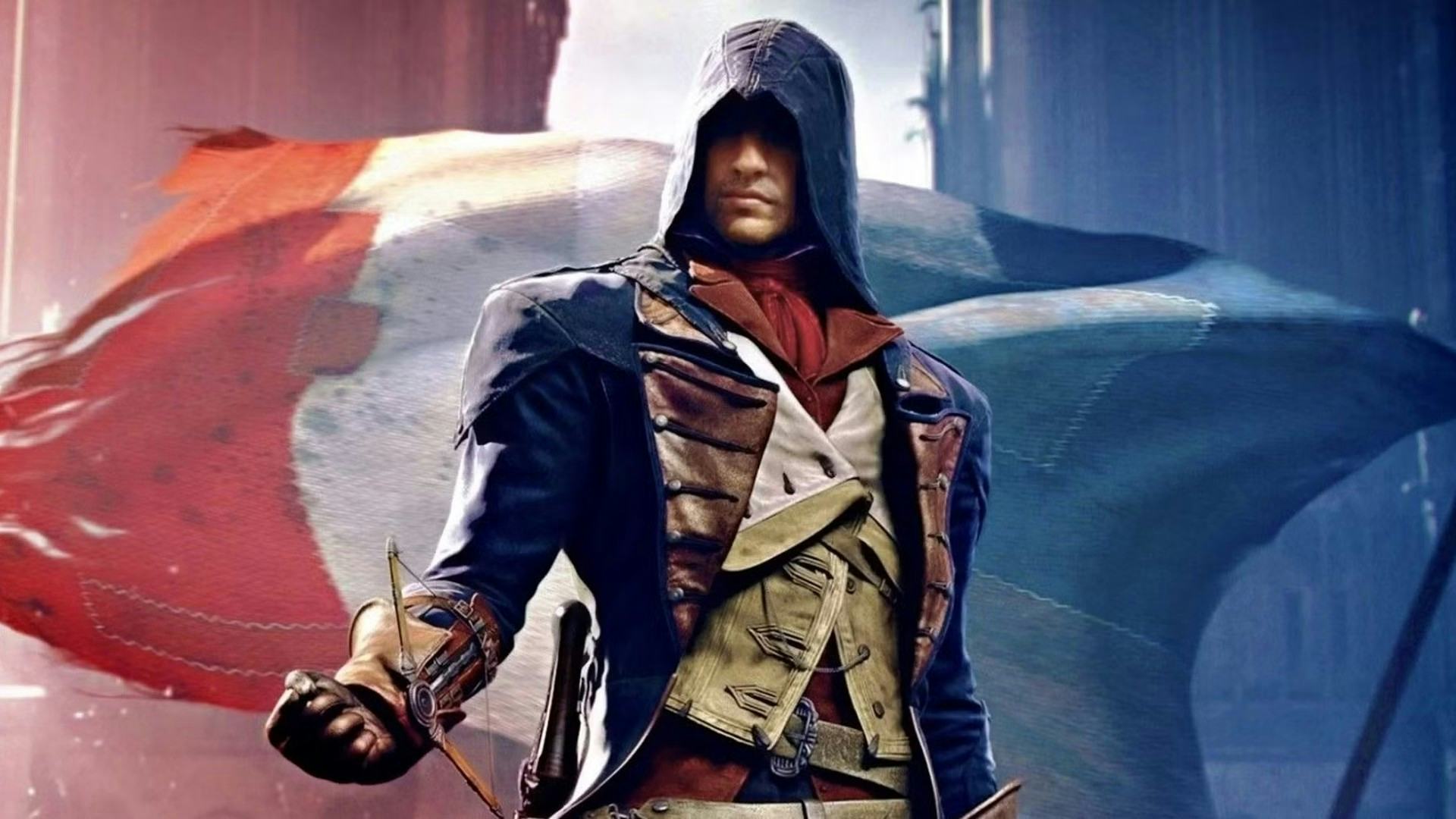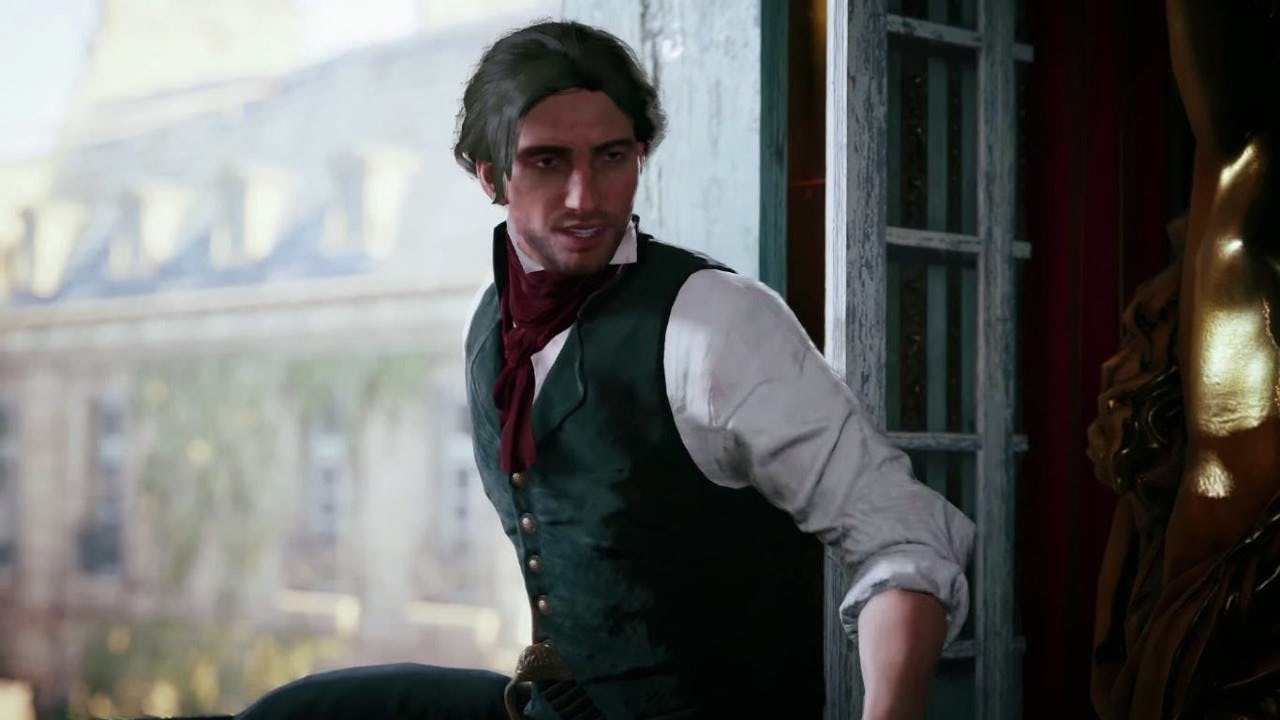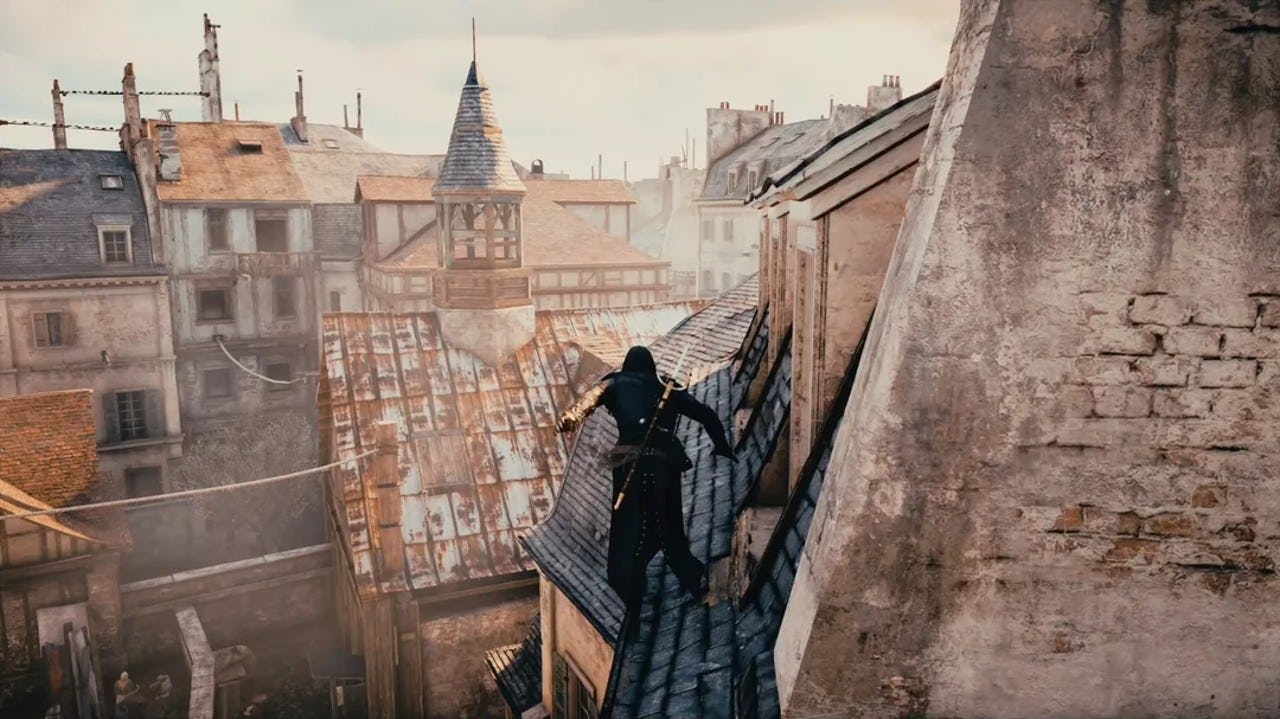
Assassin’s Creed is a fascinating franchise, not just because of the unique way it uses real history — but because of the way the series has played out over the years. There are few series that have flip-flopped as much between beloved and scorned, and things hit a fever pitch in 2014. Assassin’s Creed Unity was tremendously derided upon launch because of its nearly catastrophic quality, in terms of performance. But it’s a shame that was the case as now, in retrospect, Unity feels like one of the most visionary games the franchise has ever seen — and a glimpse of what a different future might have looked like.
Assassin’s Creed Unity has a lot to love about it, but it is important to state that the game was in incredibly rough shape when it launched. Bugs and glitches were abundant, some of which completely broke the experience with character models that wouldn’t load, hard crashes, and more. You can’t deny that Unity was pretty much broken at launch, and that’s inexcusable. But in the years since Ubisoft patched and tweaked the game — and what you play now is drastically different from what was present at launch. It’s simply one of those truths about modern video games, they change over time.

But getting past the catastrophic launch, Unity itself is an utterly fascinating game — overly ambitious and filled with huge ideas that it mostly delivers on. Taking place in Paris during the French Revolution, from 1789-1794, you play as Arno Dorian, whose father is an Assassin unbeknownst to him.
It’s hard to imagine a more perfect setting for Assassin’s Creed than the French Revolution, a period that ties into the series’ core themes of liberty, oppression, and freedom. While Unity’s main story might feel a bit slower than the more action-packed entries, it plays into those core themes marvelously. Arno is an unassuming protagonist thrown into a conflict that he never wanted to be a part of, which forces to be at odds with the love of his life, Elise de la Serre. There’s a really profound transformation for Arno as a character, going from a bit of an entitled brat to a genuine champion for justice and the downtrodden — with him realizing the sheltered and privileged life he’s led, and how so many others are in the same boat. Of course, taking place during the French Revolution, you also get to see many prominent figures of the time and a fight against corrupt rulers that care little for the people at the bottom.
It’s an ambitious story that meticulously takes time to build things out, while still looping in some of that sci-fi mumbo jumbo the series has been known for. But more than anything, Unity’s narrative just feels so much more cohesive and thematic than basically everything that’s come since. While future games have had good characters, their stories get utterly buried underneath bizarre lore and baffling plot twists, failing to capture the real thematic meaning of their historical settings.

But Unity isn’t just ambitious in its story, but also in its world design and gameplay. To this day, Unity has the absolute best parkour system that series has ever seen — letting Arno effortlessly flow across rooftops, through buildings, under tables, around corners, and everything else you could imagine. Ubisoft did a fantastic job of making movement “feel” good in Unity, it all just feels seamless and flowy. By comparison, the RPG-focused games, like Origins and Odyssey, feel like a tremendous step back in terms of movement and parkour. But interestingly, Assassin’s Creed Mirage’s parkour feels like a return that directly builds off of Unity.
At the same time, the open world of Unity still feels manageable, and not overwhelmingly massive. Traveling through the streets of Paris you constantly see signs of the people’s discontent, and the further you make it through the story the more the streets of Paris start to look like a battleground. Unity does a phenomenal job of showing the passage of time, and the tech behind the game also makes it so there can quite literally be hundreds of characters on-screen at once. Paris truly feels like a bustling metropolis. Apart from that, though, a lot of the side activities are genuinely interesting or worthwhile. The fantastic “Murder Mysteries” add intrigue and highly unique missions that help break up the pacing, “Paris Stories” flesh out the world and characters, and there are plenty of collectibles and treasure to find for those that simply want to live in the game’s world for a bit.

On top of all this, Unity’s main assassination missions are all fantastically designed, ditching linear objectives for a black box design — meaning there are multiple routes for taking down your target. That freedom in approach has always felt integral to Assassin’s Creed’s identity, and again something the later RPG largely lost, even though they gained other strengths.
There are so many facets of Unity that are inherently compelling, but the way the game’s systems and narrative themes come together is what’s truly impressive. It’s fair to say that the game was perhaps a bit too ambitious for its time, and rushing it out the door certainly hurt everything in the long run. But it’s fascinating to look back at Unity’s design and see how hard Assassin’s Creed pivoted to something entirely different immediately afterward. The newer games all have their own admirable qualities, but things could have been quite different if Unity was simply given the attention it needed. No matter what, though, it’s a fascinating time capsule of when it was released and a game that any fan of the franchise should play through at least once.







